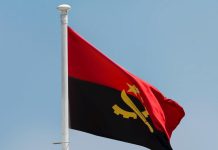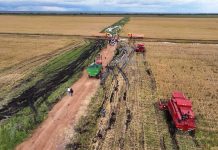Africa-Press – Angola. Those responsible for the areas of finance, logistics and human resources at the Port of Lobito, in Benguela, were trained on “Modalities of Successive Inspection of the Court of Auditors”.
The training, which addressed the topic “Successive Inspection of the Court of Auditors and Completion of Accounting Models”, was aimed at directors, department heads and technicians in the areas of finance, human resources, quality and compliance at Porto do Lobito.
As part of a promotion by the Board of Directors of the Port of Lobito, the training seminar took place with the aim of improving the knowledge of employees of the aforementioned port company in matters relating to successive inspection methods, to ensure compliance with standards.
To this end, participants addressed the organization and functioning of the Court of Auditors, successive supervision, namely audits, inquiries, investigations and reporting, instructions and models for reporting and their completion, among other relevant procedures.
By the way, the president of the Board of Directors of Porto do Lobito, Celso Rosas, highlighted the importance of the seminar, given the relevance of the work of completing accountability models by the company’s managers and technicians.
The PCA of Porto do Lobito understands that, for effective management of public finances, it is important for managers from different areas of the company to understand the laws and the functioning of the Court of Auditors.
That is why he appealed to employees to apply the knowledge acquired, since, as he assured, Porto do Lobito is a member of the United Nations Global Compact, which defends serious and transparent management of public affairs.
In turn, the speakers highlighted the role of the Court of Auditors in monitoring the accounts of entities and organizations under its jurisdiction, aiming to assess the legality and regularity of public expenses and revenues, in addition to verifying the advantageous conditions of public contracts concluded.
For More News And Analysis About Angola Follow Africa-Press






